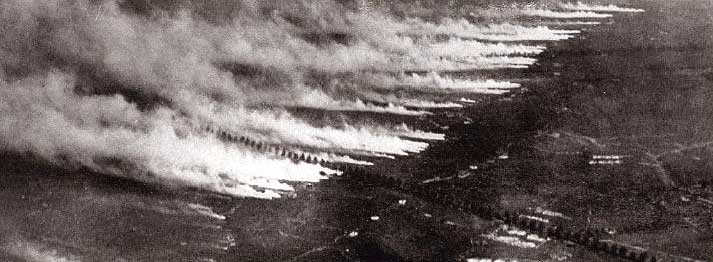Over a period of time, humans have found a way in which they can harm a lot of people at one time. Chemical agents are nothing but just simple chemical compounds that are designed to create some kind of human health problems either to destroy or to cause inconvenience to human beings. Some examples of chemical agents: ricin, chlorine gas, mustard gas, pepper spray, arsine, tear gas. Although it does sound like that chemical agents are the results of the industrial revolution that took place few centuries ago but the fact is that chemical agents have been used in warfare techniques by Greek warriors to eliminate a large number of troops in just one single blow.
Today, the use of chemical agents in warfare is more common than ever as we use latest warfare technologies that are based on chemicals. However, access to such chemical agents is strictly restricted as it can cause a lot of damage if used carelessly or without any prior information. Many top military agencies believe that chemical agents in wrong hands can create havoc across the world and therefore, only a few top officials in every country have information about where the chemical agent arms are being stored.
 In the past people used to make use of chemical agents to keep their enemies away, and therefore, they would either apply chemical agents to their arrows that would cause instant death or any other health problems, or they would simply blast the enemy ships with toxic chemical agents which would disable them from counter attacking. Chemical agents were also used in both the World Wars, and therefore, it is regarded as a potential threat to the world. Many peace organizations across the world today want to ban chemical agents that are used in weapons these days as they cause various side effects like heart problems, skin diseases, lung problems, and breathing problems that would not only affect the people but also affect their future generations as well.
In the past people used to make use of chemical agents to keep their enemies away, and therefore, they would either apply chemical agents to their arrows that would cause instant death or any other health problems, or they would simply blast the enemy ships with toxic chemical agents which would disable them from counter attacking. Chemical agents were also used in both the World Wars, and therefore, it is regarded as a potential threat to the world. Many peace organizations across the world today want to ban chemical agents that are used in weapons these days as they cause various side effects like heart problems, skin diseases, lung problems, and breathing problems that would not only affect the people but also affect their future generations as well.
